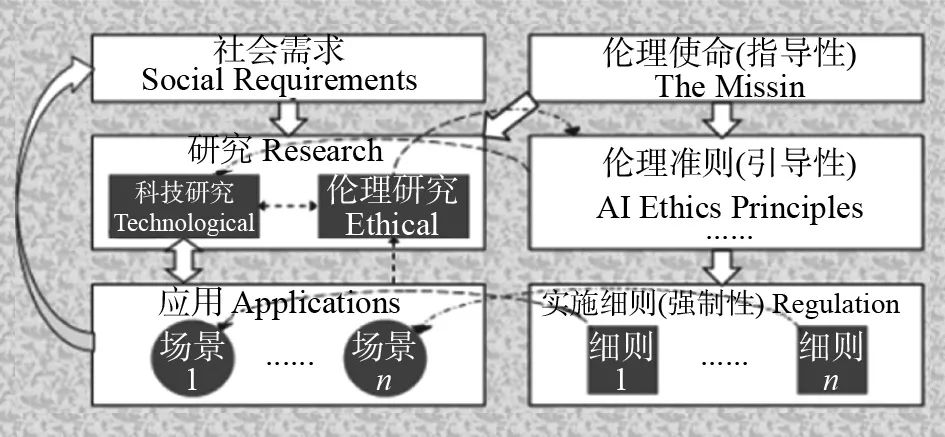Tongji Debuts At The China-French Forum To Design A Global Challenge To Talk About Artificial Intelligence Ethics
Tongji Debuts At The China-French Forum To Design A Global Challenge To Talk About Artificial Intelligence Ethics
On June 25, 2025, the 4th New Sino-French University Economic Forum was successfully held at the Catholic University of Lyon, France with the theme of "Challenges and Opportunities of Artificial Intelligence in France and China".

On June 25, 2025, the 4th New Sino-French University Economic Forum was successfully held at the Catholic University of Lyon, France with the theme of "Challenges and Opportunities of Artificial Intelligence in France and China". As one of the earliest universities in China to carry out Sino-French education cooperation and a member unit of the board of directors of the New Sino-French University, Tongji University was invited to attend the meeting. Professor Zhang Li from the School of Design and Creativity, as an invited representative, made a keynote speech on "How to build responsible artificial intelligence" from the perspective of design.

This forum continues the cooperation vision established by the "Joint Statement on Artificial Intelligence and Global Governance" jointly signed by China and France during their visit to France in 2024. At the forum, Chinese Consul General in Lyon Yu Jiang, Vice Chairman of Lyon Metropolitan De Romain, Chairman of the New China-French University Association, and Woinbe, President of the Catholic University of Lyon attended and delivered speeches. The forum brought together more than 200 representatives of government agencies, industry leaders and university researchers from China and France, focusing on the profound impact of artificial intelligence on different fields such as society, policy, industry, and education, and exploring the establishment of an international governance mechanism for consultation, joint construction and sharing.

In the section of the thematic plenary meeting "Ethical Issues of Artificial Intelligence", Professor Zhang Li responded to three key issues: Who builds "responsible artificial intelligence" for whom? How can design effectively improve the social inclusion of artificial intelligence ethics? And how to build a design ethics system that is appropriate to it in the uncertainty brought about by the rapid evolution of technology? She pointed out that the ethical issues of artificial intelligence should not be limited to expert discourse, but should be actively incorporated into public participation and more daily perspectives, thereby avoiding technical specialization. Under the framework of "Artificial Intelligence Ethics through Design" (AI) proposed by it, design, as an ethical medium, can promote public participation in the ethical governance of artificial intelligence.

Professor Zhang Li pointed out that through experience and public participation, artificial intelligence design ethics can lower the knowledge threshold for understanding and reduce the tendency to specialize in technology. The experts at the same meeting also echoed this view from different angles. Professor Zhu Cheng, director of the Department of Philosophy at East China Normal University, believes that design gives abstract ethical issues specific application scenarios; Jean-Michelle Roe, coordinator of the Law-China Joint Research Project of the Lyon Higher Normal University, proposed that this field provides new opportunities for Sino-France and even broader international cooperation; Matthew Guillaumemann, associate professor at the Center for the Convergence of Science and Humanities at Catholic University in Lyon, emphasized that the private-led social experiment of artificial intelligence ethics should be strengthened in the future; Li Hui, director of the Science and Society Research Office of the Shanghai Institute of Science and Technology, pointed out that the agility of artificial intelligence ethical governance is also inseparable from the in-depth participation of the public. Scholars from the fields of philosophy, design, science and technology policy and international cooperation have initially outlined the diversified path to building a "responsible artificial intelligence governance system" based on keywords such as "public participation", "agile governance", "social experiment", "global cooperation", and "benevolence-oriented".
This forum demonstrates a good trend of China and France continuing to deepen exchanges and actively expanding cooperation in the field of artificial intelligence. In the future, Tongji University will further consolidate its strategic partnership with New China-French University and promote coordinated development.
The New China-French University (Association) was established on the former site of the China-French University in Lyon in 2014, aiming to inherit the history of cooperation between China and France, and build a platform for China-French cultural exchanges in the new era, and promote cooperation and exchanges between Lyon and China in all aspects. Tongji University actively supports the establishment of the New Sino-French University, officially became its founding unit in 2016, and became a member of its board of directors in 2019.
Contributed by Liu Yujia





